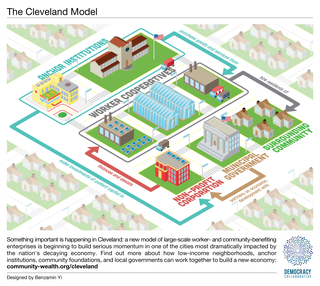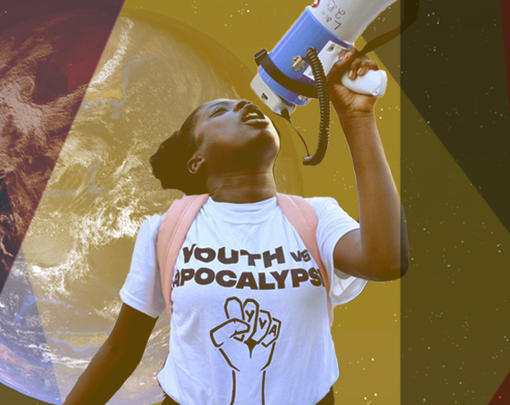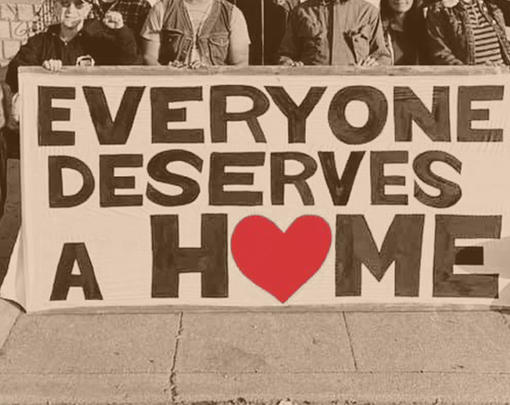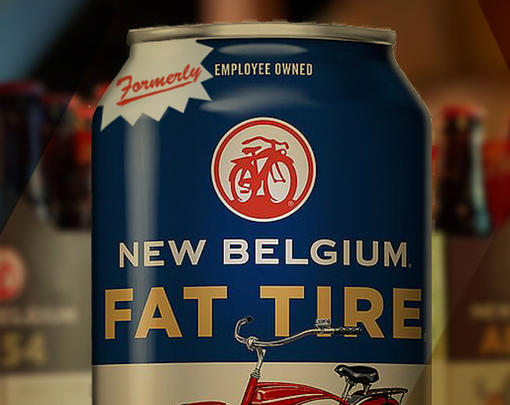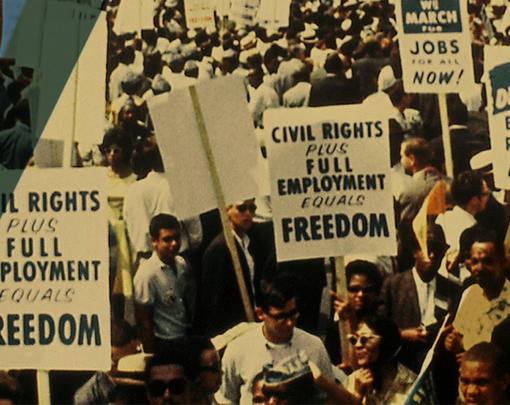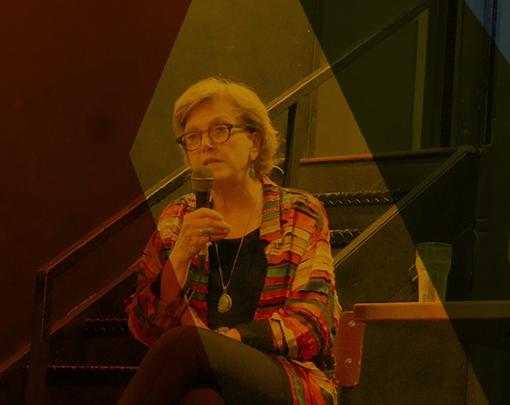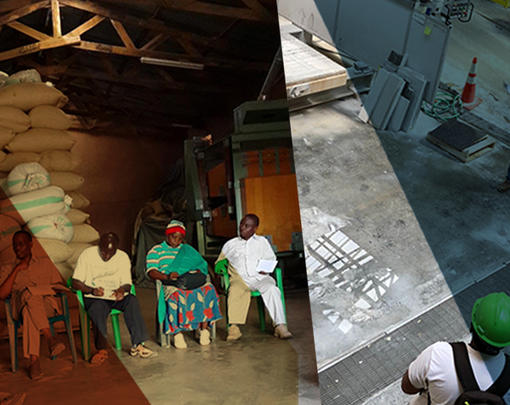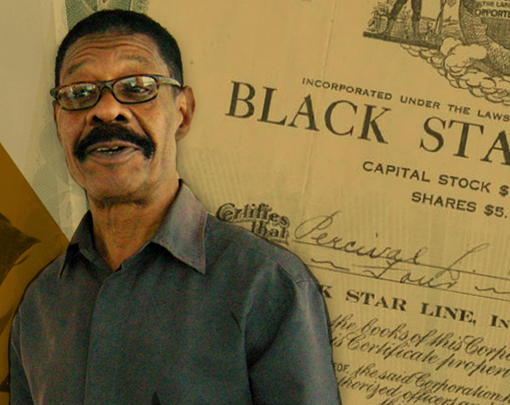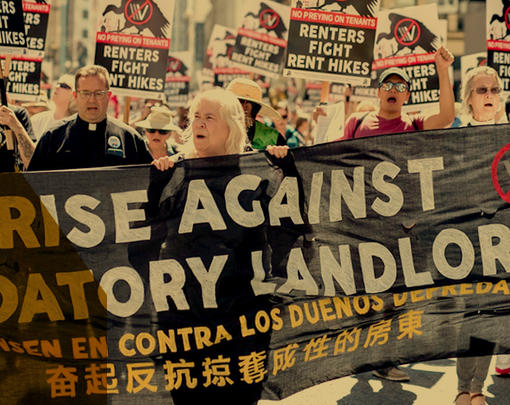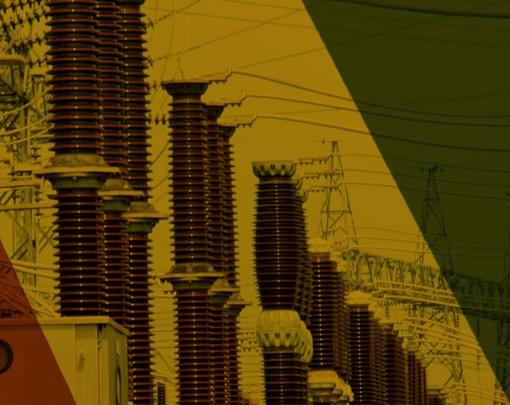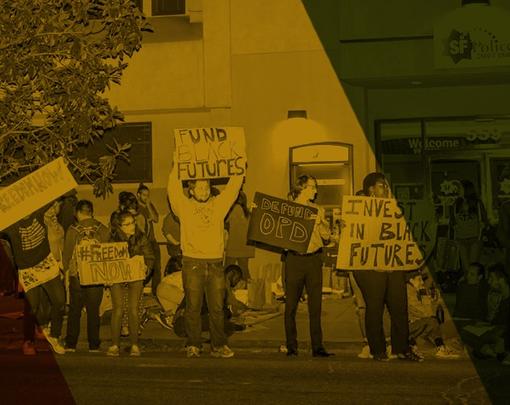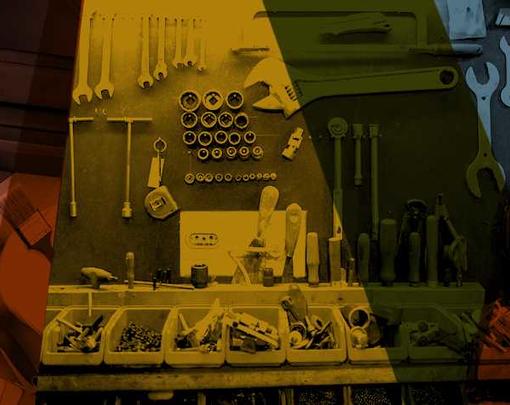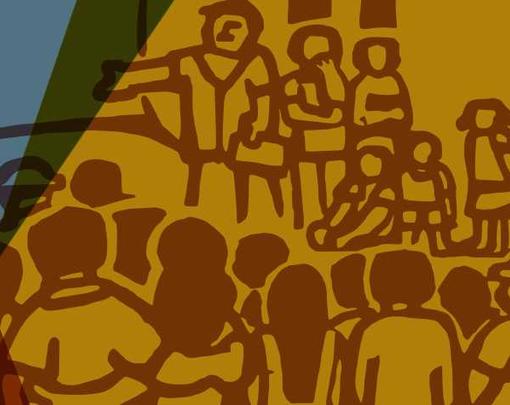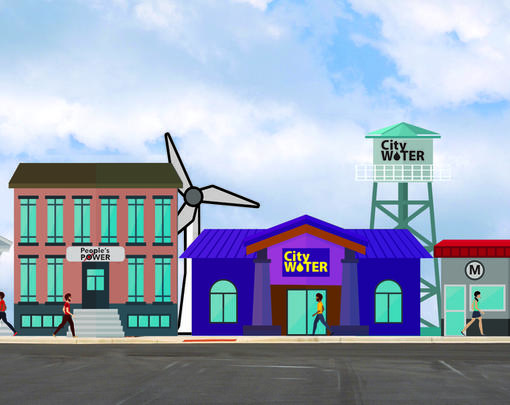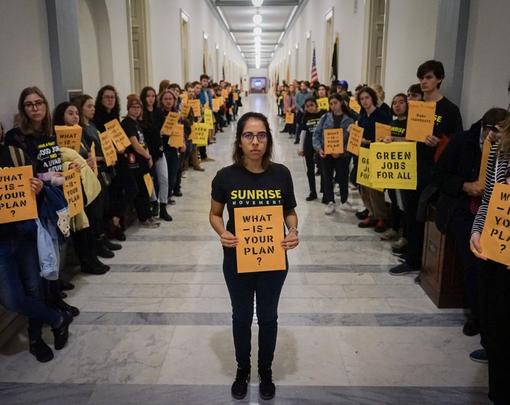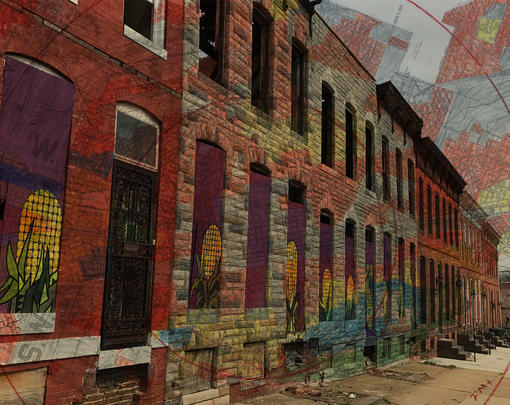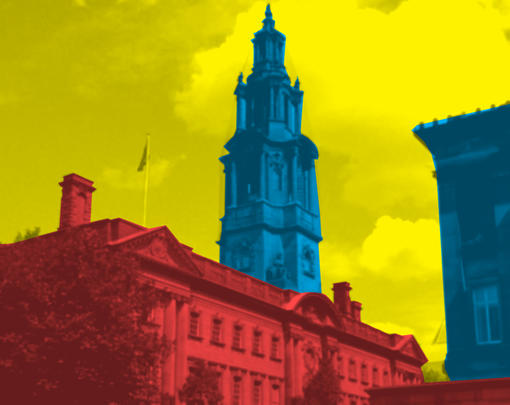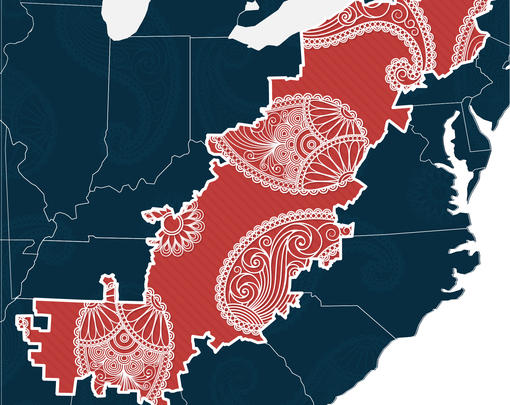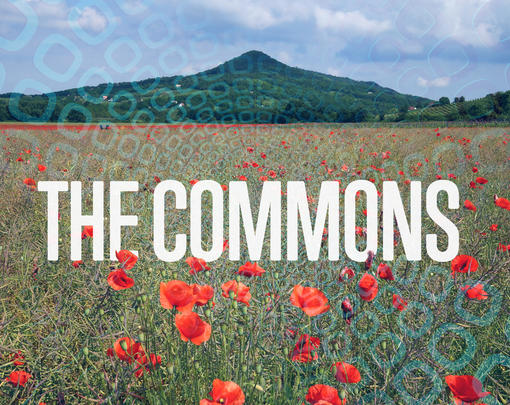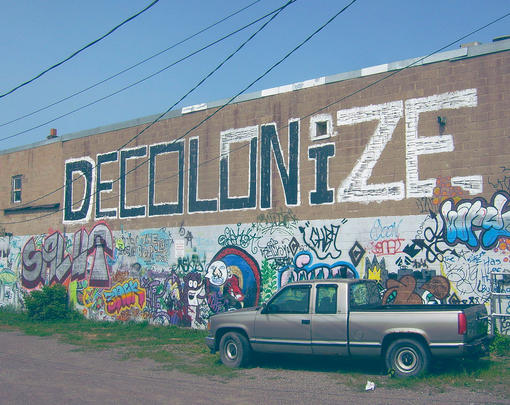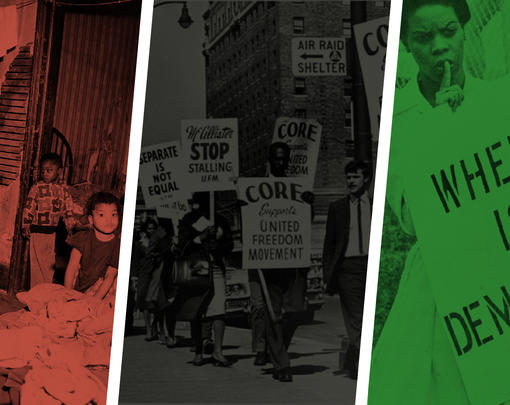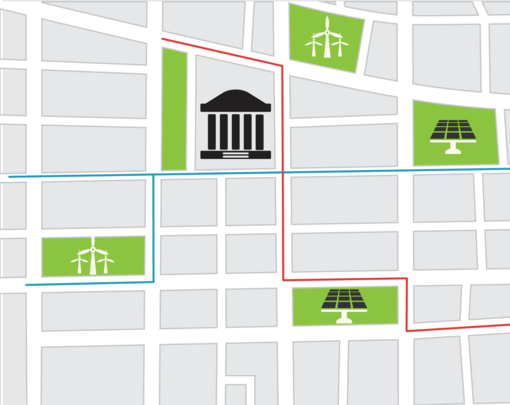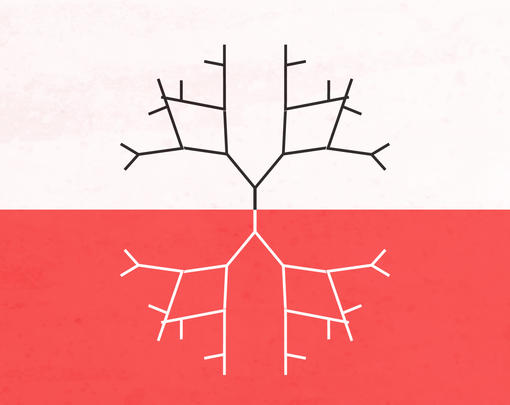In the second of a two-part interview, Next System Project Co-Chair Gar Alperovitz talks about ‘what comes next’ after our current corporate capitalist system: the Pluralist Commonwealth. Be sure to listen to the first episode, in which Gar discusses his trajectory as a system changer and how he views the present political and economic environment.
Subscribe to the Next System Podcast via iTunes, Soundcloud, Google Play, Stitcher Radio, or RSS.
Adam Simpson: You’re listening to the Next System Podcast. I’m Adam Simpson and today we have the second part of our interview with Gar Alperovitz, this time getting his own perspective on what the next system should look like.
Gar, welcome back to the Next System podcast.
Gar Alperovitz: Thanks. Glad to be here.
Adam Simpson: Absolutely. In our last podcast, we talked about your story and how it relates to politics today. In this episode, we’re going to focus on your perspective on the next system, and particularly the pluralist commonwealth. Before we get there, I wanted to ask about something obviously very near and dear to my heart because I work at the Democracy Collaborative in the Next System Project: as one of the founders of the Democracy Collaborative in 2000, what was your objective in founding this organization?
Gar Alperovitz: Well, I have to give you a longer story than you probably expect. From my perspective, the Democracy Collaborative was changing the name of an organization that existed from the early 1970s—this was the Exploratory Project for Economic Alternatives which Jeff Faux [who would go on to found the Economic Policy Institute] and I set up in 1973. And if you read the mandate, it was to look at work around companies, look at public ownership, changing the system, all the questions we’re now looking at. That then became the National Center for Economic Alternatives: when the Carter Administration came in, we got some public money. And because of the big Youngstown fight where I was involved in helping set up a big worker community-owned company in the steel industry, we didn’t want to mix nonprofit money and political money with public money so we had two organizations, the National Center for Economic Alternatives and the Exploratory Project for Economic Alternatives.
The questions were always the same. We had André Gorz brought into the United States in the late ’60s or early ’70s. The question of non-reformist reforms was always present.
But what the hell do you want if you don’t like corporate capitalism and you don’t like state socialism? That was always the question. And community ownership was in the 1960s. The community development corporations of that era were very interesting. We wanted New Communities Inc., in New Jersey. 600 people, community-owned wealth, and community-owned project. Very similar ideas. That was going on the ’60s and the ’70s and I was involved in that in Senate. So those ideas were at least in the air in those days.
I think Ted [Howard, current President of The Democracy Collaborative] came to work for the National Center for Economic Alternatives in the late ’90s. He came to me and wanted to do some of this stuff. What happened was the University of Maryland got interested in the work and recruited me to become a professor and to bring the National Center into the University of Maryland and create what we then called The Democracy Collaborative.
The name came from Benjamin Barber, who was a well-known political theorist who we recruited to be part of it—he coined the term. His book on local democracy is a wonderful book. But that’s how it got that way. And then Ted and I moved whatever was outside into the University of Maryland. It then went through many iterations and, essentially, when I left the university, it almost died and then Ted took the lead and created the next stage of it, doing a lot more of energizing and re-energizing it. So in some sense we created it twice. And so we co-created it.
Adam Simpson: One of the milestones for the Democracy Collaborative is the Evergreen Cooperatives. What that work in Cleveland mean to you in 2017 in our current political and economic context?
Gar Alperovitz: I think Evergreen is an extraordinary project and I had some small hand in coaching the theory of it with Ted. But Ted Howard put that together for seven years, he and another friend of ours, John Logue, the late John Logue, who was inspired by Youngstown and set up an employee ownership center at at Kent State, who helped us go to Cleveland. The model, I think, is extraordinary because it’s not a worker-owned model. It is a community-based model, geographic community, with a nonprofit corporation with community representatives as the dominant power to which are attached worker-owned cooperatives.
And I think that model is much more interesting than worker-owned companies on their own and I think it has the power of building a politics that’s much greater than the power of individual worker-owned co-ops. And I think it also embraces the notion of ownership as a community building strategy rather than as a worker enhancing strategy. And it’s a joint model. I’m looking—and I hope we’re all looking—for opportunities to do the same kind of thing again. Worker ownership is very hard to do.
I think there’s maybe 600 worker co-ops in the country, if you count everything, and the large majority of ESOPs are not really democratic ownership structures. So the models that I think are going to gain power— if we can do it intelligently—are ones like the Evergreen model where there’s community-wide joint structure, community and worker, which builds a politics or could build a politics from that base.
And then the use of procurement. I think we may get it in the model in Preston, England where we’ve done some work and they’ve picked up on the model just responding to the model here, based initially on some talks Ted gave there in 2012. So we may see a model develop faster in other countries where they’ve got a community structure and build off the community rather than a narrow notion of worker ownership.
Adam Simpson: Right, right. And I want to return to this briefly before we go on to the Next System Project. The projects like Preston or projects like the Evergreen Cooperatives, what does that mean in our current moment with Trump in power post-the 2008 collapse. What do you think these models mean or could mean?
Gar Alperovitz: Take the Evergreen model, which is a community-building structure with worker-owned companies and the use of public procurement (We should just clarify that for listeners— hospitals and universities purchase from the cooperatives, and that helps stabilize the whole community and helps the workers in the worker cooperatives.)
This model is very interesting because there’s a lot of public money in the hospitals and universities. So it is a planning model that helps both build community and democratize ownership. It’s a very interesting model. If you made that national, you would have public money going into national railroads and mass transit targeted at worker/community-owned companies building this stuff. So it’s a model of democratic socialism, if you like, but radically decentralized and very participatory and community-based.
So it’s a very powerful theoretical model implicit in the Evergreen structure, and it’s very hard to do. But so are worker co-ops. I think we’ve got maybe 600 worker co-ops—they are extremely difficult to do on their own. And what’s interesting about Evergreen or the next iteration, it could also have the mobilization of a community behind it, because it represents the whole community or could. Evergreen is a structure that was set up in a way that has community representatives and democratic governance, but it wasn’t built with a democratic mobilization process in mind.
If you mobilized and built community structures that demanded their version of a next iteration of the Evergreen model, building on community organizing, that would be something. I suspect they could do it in Buffalo where there’s a really interesting politics in organizing going on. That would be one place. Might be able to do it in Santa Fe, New Mexico or in Richmond, Virginia, or Oakland, California. There are going to be cities where where you can begin to mobilize from the bottom-up and then use the same principles of using public purse.
I think, in the Trump era, we are laying the preliminary basis, and I’m going to say it very carefully, in ideas and in projects that suggest the possibility of a systemic design to build politics around.
And I think that’s really important, really important work to do, laying down examples of what could become the basis of a politics. There’s not a politics. It’s preliminary, it’s pre-political. It’s institutional design that points in a new direction, and that’s the work of this period. At another level there’s work of the Bernie, organizing people who want to call themselves democratic socialists. That’s basically left liberal politics.
Bernie [Sanders] is interested in worker ownership—but usually ESOPs. He’s primarily interested in healthcare, which is very important. He has said he does not want to nationalize anything, he said that in a public statement. He’s not a socialist in that sense. But he’s brought a kind of socialist organizing back to politics. And if you can put together new models that build up over the next period on the ground and begin to connect them to a politics, then you’ve got really the basis of a really powerful movement.
So then the idea system, and I think we’re just getting there, the idea system that could take that to the national level, how these things could relate over time and build up to a systemic transformation that is both democratic, radically decentralized, ecologically sound, equitable, community-based, and not authoritarian—all the things that a serious model would require, that’s the preliminaries to a real politics.
And I think we have that chance. I think that’s what this periods about. People have to have the perspective of how we lay this stuff down so that the transformation becomes powerful—rather than we’re going to get it tomorrow or yesterday. You have to walk on two legs, there’s a lot of pain that has to be dealt with, but laying down the foundations is really important.
Adam Simpson: Aside from the Democracy Collaborative, this project within the Democracy Collaborative, the Next System Project, what was in your mind when you were thinking up the Next System Project? What was your intentions with this group?
Gar Alperovitz: It’s something that I went through myself in the early ’70s because I thought something was wrong with the system but I certainly didn’t have an idea of what a better system was. What was on offer? Russia? Who wanted that? I think people first need to even have the idea that it’s possible, really possible, to have a different system. That’s not an idea most people have. What you see is what you got and that’s it. The idea that you could transform the whole damn system … is foreign to most people. For most people, it’s a weird notion. “What are you talking about?”
But as a historian, system change is very obvious. It happens all the time. So the notion that you could give people a path, things building up and a model that is attractive, that’s a couple decades of work. Laying down the ideas, the alternatives, building a politics, building practical examples.
So the Next System Project was: what really would make sense, really, as a viable democratic, egalitarian, community-building, next system, systemic design that was better than corporate capitalism or state socialism? Because if you don’t have that, what are you talking about? You want to change the system? To what? So that ought to be something available for public discourse, for thought, for intelligent examples. So the first question was can we legitimate that debate. That really was my intention.
Just to legitimate the discussion. We’ve published, what, 30 papers or so that Gus [Speth] has commissioned, that we’re debating. Here’s a more centralized one, here’s one that begins with ecology, here’s one that begins with community, here’s one that begins with small business. Let’s begin to open a big debate about what the future could look like, but in very realistic and practical terms. And in that debate, then, what is your model that you think is the better alternative? What do we think in that debate? So that’s part of the ideological challenge, opening up that door. And Bernie’s demonstrated you can open with the word socialism.
Adam Simpson: That’s right.
Gar Alperovitz: That’s very interesting. I didn’t know that. I don’t think anybody knew that, that you could have that particular conversation in the current political context.
So we think that you can have the conversation about the next system, particularly as this one fails, as it creates pain and worry and irrational politics. That’s the time when you probably have to have this discussion, even in the midst of great threat and danger. That’s the theory anyway.
Adam Simpson: We’re going to move on to your model very quickly. You’ve answered a few of my questions about the Next System Project already, but I wanted to ask about trends that you think are fueling people searching for answers, the trends that are leading people to think about our system now and how it’s inadequate and thinking about the alternatives. You’ve already mentioned this several times today, but I wanted to ask specifically about one trend that you know I’m a bit obsessed with, that of workforce automation. Because I know you’ve written about universal based income, you’re familiar with arguments about job guarantee programs and things like this. But I wanted to ask about your broad sense of workforce automation, what it means for working class people, and what are the values in place that we should think about when we think about this problem.
Gar Alperovitz: It’s interesting because it’s posed under the current system as a problem—because it displaces people.
Under an alternative system, it’s not a problem at all. It’s a gift. The current system produces something like $240,000 dollars for every family of four. I think that’s the current number, in that range. A quarter of a million dollars. If you divide up the national income equally, it’s about quarter of a million dollars for every family of four already. Or a 20 hour week and $125,000 for every family of four. So what we call automation or technological change ought to be an extraordinary boon. It opens the door to the future in a way that never had been possible, an incredible, bountiful future.
One more thing about that. During the 20th century, technological change permitted a sevenfold increase in per capita income in the 20th century. Same number of hours, you got seven times as much output. If that happens again, which is, admittedly, a pretty mixed record over the course of the 20th century—two world wars, massive wars, lots of destruction—it would come out to well over a million dollars per 20 hour week. And so the future is bountiful if we play our cards right. On the other hand, what it’s now doing is destroying jobs and destroying families and destroying livelihoods because it—technological change and the way trade is handled—is displacing people.
So one alternative is guaranteed income or guaranteed jobs of some kind. And that can go either way. It can be used as a way by the right-wing to put people aside and bury them and have them shut up. Or it can be the basis of a way of opening up a door towards transformative income or guarantees. My own view is that we ought to take advantage of it and try to turn it into a positive rather than a negative. So there’s a big debate about this, on the left particularly, whether or not it’s a way to buy off all political problems and keep people on the margins, or could it be an opening to the kind of future that I was just describing.
Adam Simpson: I saw recently—it goes to your argument—that this doesn’t have to be a problem, that under our current system, workforce automation means layoffs but under an alternative system, it might mean vacations.
Gar Alperovitz: That’s a wonderful way of putting it.
Adam Simpson: Yeah. It does bring me back to [James Maynard] Keynes, “Economic Possibilities For Our Grandchildren,” because if we’re thinking about this alternative system and how we get there, I remember Keynes was suggesting that for just a little while longer we need to stick with this capitalism thing. I think he actually said the engine can be compound interest and avarice. Something like that. So it gets us back to theory of change, but do you think that we can we get to this next system with the tools of capitalism, avarice, and compound interest?
Gar Alperovitz: Well, Keynes was a capitalist! He wasn’t a socialist.
Adam Simpson: Sure, but it seems to me that in “Economic Possibilities For Our Grandchildren” that it was very much alluding to post-scarcity at the very least.
Gar Alperovitz: Yeah. He definitely was interested post-scarcity. But he came at it from a capitalist frame. He was interested in saving capitalism for a better society, not in socialism. Today, though, I think there is a basis for a communitarian socialism. There’s a lot of community organizing, there’s a lot of political people who call themselves socialists and who can frame this debate if we did it the right way, not in evolving capitalism but in laying the basis for a different system as one key element. And I think that ought to be taken up as the way we think about the problem. I think people are very worried about, “Oh, the other guys are going to get us.” Why don’t we get them? Why don’t we take this tool and turn it into a way of building the designs we’re talking about that ought to free people up for vacations, for a shorter work week, for lots of reduction in hours… All of that’s available in the technology.
And one way to distribute it is through public grants or funding. That’s one way to do it. Other ways of doing it—increasing wages. There’d be ways to do it if you actually were to take it on as a serious political venture. So I think there’s a pony… You know the old story about the pony? There’s this room full of manure and a young kids says, “Oh, that’s wonderful,” and his dad said, “Why is that wonderful?” He said, “Must be a pony in there.” I think there’s a pony in the technology if we do it the right way.
Adam Simpson: Sure. Well with that, I want to move on to your own model, the pluralist commonwealth. Of course our listeners will know that your latest book Principles of a Pluralist Commonwealth is available completely for free on our website and we encourage people to learn more there. But since I have you, I did want to ask in your own words, how would you describe or define the pluralist commonwealth, your model for the next system?
Gar Alperovitz: Well, it’s plural forms of common wealth. Cooperatives. Worker-owned companies. Municipal-owned companies. Public companies. Regional structures like the Tennessee Valley Authority. There are many, many forms. City-owned television stations and public utilities. So the model is the ownership of wealth grants great power, either to individuals or communities or corporations, and transforming that in a way that makes it democratic is a key principle.
If you centralize it in the state, you get state socialism and its dangers of overcentralization. If you centralize it in workers, this often disintegrates into worker capitalism because they must compete with each other, because the market drives them to compete. And that’s a very great danger that I don’t think has been adequately discussed on the left or the right.
So I think the structure that’s most important in the pluralist commonwealth, from my point of view, first diversity, but community as a structure that necessarily brings people together. So the Evergreen model is a communitarian structure, community-wide, neighborhood, geographic. In a full model of this sort, it would include everybody, including the old folks, the young folks, the women who stay at home, the elderly, the sick. Everybody in the community is counted in, not just the workers and not just the businesspeople. And the notion that we’re all in it together is a communitarian notion.
During the 1960s, one of the interesting developments in the late ’60s and early ’70s were community development corporations that were of scale and owned large things on behalf of the community. We still have one, New Communities, Inc. in New Jersey. It’s neighborhood-wide, I think there’s 600 employees, does all sorts of things. But it has a view that we’re here for the whole community. So I think that model is an important building block for a vision of we’re all in it together.
A vision of community. And sophisticated, since the sense that we’re all in it together also can become suffocating. So parts of the system are worker-owned, even parts of run by individual entrepreneurs within that structure is a possibility as well. Beginning to flesh out a real design that is plural yet begins with common wealth, hence, the pluralist commonwealth.
Adam Simpson: So my next question was about capital itself. So in our current system, the capital is owned privately, there are socialists and others who want capital to be owned by the state or by worker-owned cooperatives. We’ll talk capital, if I get this right, democratically managed by communities. Is that correct?
Gar Alperovitz: Yes. But in a complex way that tries to preserve decentralization as well. And again, that’s what’s interesting about Evergreen. It is a community-wide structure to which also are attached worker-owned cooperatives. It’s not overly simplified, and I think that’s really a rich model to begin thinking about. But the pluralist commonwealth word, funny term, is the notion that a democratic system has to have plural forms of common wealth.
Adam Simpson: Sure. And I imagine one of these plural forms of ownership would be public ownership for energy, for manufacturing, or for-
Gar Alperovitz: For larger industry. Because larger industry becomes a real challenge because it centralizes power. So how do you actually both have larger industry and maybe joint ventures with communities and workers? For instance, when General Motors went down and Chrysler went down, we nationalized them temporarily. Saved them with public money. And then we gave them back to the stockholders. The next round, when that happens—it could be a conversion of industry to mass transit and high speed rail, public companies with joint ventures with the workers in, say, Detroit and the larger community. Joint structures that are community, worker, and public. And in a large country like our own, they can be regionalized like the current Tennessee Valley Authority’s a regional public authority.
So thinking much more creatively about these designs from the point of view of democracy, community, liberty, ecological sustainability, yields much more complex models than the knee-jerk state socialism or anarchism. And I think that’s one of the goals, really one of the goals of the Next System Project, to actually think through the implications of different models.
Adam Simpson: Right, right. You bring up regionalism, which I want to come back to—there is a tension between something small enough for citizens to control and engage with but something large enough to meet obligations effectively. I wanted to ask specifically about the principle of subsidiarity that you discuss in Principles of a Pluralist Commonwealth, and I wanted to ask how that informs your conception of decentralization.
Gar Alperovitz: That’s a really important question for progressives and the left to debate. This is a term from the Catholic Church: you only go to the higher levels of centralization if you have to. And I think that’s a good principle. You start at the lowest level possible, appropriate to the task.
So it may be a neighborhood, or it may even be an individual entrepreneur or a small co-op and then only go to the neighborhood. Murray Bookchin’s model was a neighborhood model within a municipality, then to the municipality, and only if necessary to the state, and only if necessary to the region, and only if necessary to the national government, and having to make the case at each level. So maximum decentralization I think becomes important, but not foolish decentralization. Some tasks require national organization coherency or regional structures that really make big decisions.
There’s no knee-jerk way to do it. It’s appropriate to whatever the scale of the problem is, both politically as well as technologically. As soon as you say that, it opens a really interesting, intelligent, researchable, debatable discussion about what makes sense.
It’s not like there’s a rhetorical answer. Well, what does make sense for us? Should we centralize all of the banking system, and if so, why? Or can we have regional banks that are independent? Would that be better or should they go to the community? So it’s an intelligent debate rather than a rhetorical debate about what is the appropriate scale, both economically and politically.
Adam Simpson: This brings us very easily to my next question. I come from Texas, very conservative background. The notion of small government is very popular for my conservative friends and family. I think there’s a lot there for conservatives to like, but it raises the question of perhaps economic freedom and “liberty” as it’s used in American political rhetoric. And I wanted to ask you about… maybe there’s a tension, maybe it’s a false tension, you’ll say. I don’t know. But this tension between individual liberty as it relates to the economy and your conception of a small state but a communitarian vision. Does that make sense?
Gar Alperovitz: That’s a good question. The first thing I want to say is that we’re going to win Texas.
Adam Simpson: I believe it. I believe it.
Gar Alperovitz: Yeah. If you look at the trends over the next 25 years and the projected growth of the Hispanic population… Texas is really much more interesting than a lot of people think, because it has a state that’s big. It’s like California. California and Texas are the places to watch.
Adam Simpson: And Texas is due for a lot of pain with climate change. And I think it’s going to lead people to question things in a different way in Texas.
Gar Alperovitz: Yeah, it’s very interesting. People ought to begin thinking—just as you are—creatively about Texas. The three big regions, and I’m a regionalist, California, Texas, and New England, are the places to watch because those are the places where I think we’re going to see regional breakthroughs.
Having said that, I think the biggest failing of the left has been its neglect for the question of liberty. It simply has not emphasized the institutional requirements of liberty. There’ve been civil libertarians but it’s always been in in form of constitutions and law. Which is very important, I wouldn’t knock it! The conservatives were right to worry about centralized states, the honorable conservatives, that is, who were genuinely concerned with this problem and engaged in what I think was an honorable debate.
But I think the left dropped the ball in developing an analysis of the institutional conditions of liberty. Now, what was emphasized by the right was small business, an entrepreneurial economy. They didn’t really look at what the corporations were doing to centralize power. Their notion was that being an entrepreneur or a small farmer would give you a place to stand economically. That was about the extent of it.
But another possibility is to look at guaranteed jobs. Now, where do we see liberty? College tenure is a guaranteed job. You can say whatever you want and they can’t fire you, at least in theory. This is an interesting idea about liberty, not just for college professors, but in general. There was a corporate management consultant who was conservative but was interested in liberty, and he was arguing that guaranteed jobs was a precondition of liberty. And I think that that idea is right. Decentralization is also a condition of liberty. And I think the left really hasn’t dealt with all of this adequately. What is it that would really give people freedom? Time is another one. We talked about technology. We need guaranteed income or guaranteed jobs: but also free time, more vacations or shorter hours. That’s where real liberty comes in.
Adam Simpson: So I had a conversation with one of my friends from Texas. He’s wanting to start a business and then we were talking about cooperatives, and I wanted to push him towards more ethical forms of businesses like cooperative ownership or democratic ownership. For him, it seemed very hard to get to the point where he was okay with the notion that he couldn’t just own the whole factory, for instance. Own the whole piece of capital. Is there a tension there between the freedom to own a piece of capital (that is, in Marxist terms, exploitative of the people that work there) and the other senses of liberty?
Gar Alperovitz: It’s a really good question. In some cases, another piece of the puzzle is individual ownership for a limited period—that may be one of the conditions of producing the technology that frees other people, letting people start up really interesting companies, high tech companies, some of which can provide enormous public benefits. And there was a little book that I wrote, which is called Unjust Deserts. We went through a whole series of models which were trying to address this question. For instance, maybe people could own these companies for a short period of time in order to get the benefits of innovation for society as a whole. Yes, they would make more money—but maybe it could then be transferred at the end of their life. But you get innovation out of it. And maybe you get some decentralization out of it.
So I don’t have a knee-jerk view about that and I think that these are design problems. They’re political problems, they’re institutional problems, but they’re also design problems. Maybe we would like to have entrepreneurs in our next system, and yes, they would make money and own the company for a while, but maybe the public benefit should be so great that we ought to allow some of that. Many socialists have had that idea in the past, establishing a limited role for this sort of thing. I think it’s an open question.
Adam Simpson: All right, so this brings us to planning. And when we’re talking about smaller interconnected communities with maybe some larger industries that are held by the public, there seems to be a very crucial part of this that requires planning in the pluralist commonwealth model.
So the description begs some question when we’re talking about a democratic economy. It begs a certain question about our contemporary economy. Because I think in Principles of a Pluralist Commonwealth, you lead by saying all economies to some extent have a planner. In some sense, there’s planning going on in every economy. And what you’re hoping for is a democratic and transparent form. I don’t want to bring us too far backward in diagnosing the problem, but is it fair to say that our economy now is authoritarian and opaque?
Gar Alperovitz: Well, let me say this. The current economy and the economy for the last at least 50 years has been a substantially planned economy. Now, who are the planners? Some part of it is a corporate structure, with their views of what the economy ought to do and what they want to … Some part of it is the Office of Management and Budget and the Congressional Budget Office, in which the implications of different federal spending are at least tracked in terms of their economic impact so that you can make a choice. At the macro-level we plan all the time— that is the tax program is a planning program, the public investment program is a planning program, the projections of what it will do to the economy are being made all the time. Modern computer technology would allow you to really get some idea of the implications. There’s a lot of interest in participatory planning at the very, very local level. It’s mostly participatory budgeting. It’s very small scale, but there’s experimentation with actual participation. The Humphrey-Hawkins legislation offered a planning structure within corporate capitalism and a liberal view of it.
So I think the planning issue happens all the time no matter what. Now it’s done largely by the corporations who dominate the investment strategies. I think we’re going to have to build our way to it, both at the local level with the experiments in community planning, direct budgeting, which is not planning, it’s budgeting. At the national level, taking the … what happens is OMB comes through with a projection of what the current budget will do in the current tax structure. The CBO currently says, “These are the implications. We disagree.” There is a debate about what the overall structure will be.
That could be modified so that you’d actually put in very different variables about what was going to happen. We’re going to build lots of free healthcare, we’re going to cut down the role of the corporations, we’re going to do a lot of different environmental things, and what are the implications for jobs and location. That’s all available in terms of computer technology, so you could imagine the presentation, even now, of a national budget and its geographic inequality, psychological or other implications, its targeting implications. That could be done right now with available technology. You could have a Congressional Budget Office and congressional groups coming through with two or three different alternatives.
At the local level, you could build up to these designs right now using local technology so that you have a local and state view to put up against the national view. You could iterate these back and forth and make a decision. It’s not beyond the current technologies to do that.
So I think where we are now is to experiment. There are very primitive experiments with participatory budgeting, for a small piece of the local budget, which is a very small piece of this larger planning question.So we haven’t really opened this door, and it’s a really interesting intellectual problem. A great problem for graduate, PhD theses. Lots of folks out there and there’s a lot of good problems out there. This is one of them.
Adam Simpson: My follow-up to that was about the institutional design, which I think was very well answered by the participatory aspect of it. But that leads us to my final question, which is somewhat difficult and a bit grim so bear with me. In Principles of a Pluralist Commonwealth, you’re talking about an evolutionary theory of change. I’ve heard you say before that liberal reforms don’t get us to where we need to go. Revolution, in a lot of ways, doesn’t get us where we need to go. I think that leaves us with the evolutionary theory of change with André Gorz’s non-reformist reforms and things like that.
But on the other hand, we’ve had in very recent months very devastating hurricanes. Cities being devastated at an alarming rate in the past few years with superstorms and we’re only apparently due for more in terms of ecological events that are brought on by anthropogenic climate change. What I wanted to ask is a difficult question. Do we have time for evolutionary change, and how do you approach the dilemma of a collapsing environment under our current system of capitalism with the need for deliberate evolutionary change?
Gar Alperovitz: Well, first about evolutionary change in the next period. We don’t know enough and we have very little institutional development. There’s, what, 600 worker co-ops involving 5,000 people? We don’t know much about how to organize the next system tomorrow. We know it in theory—but that’s basically it. So there’s a lot of the work to develop what we need to develop if you wanted to have a different system. Both in ideas and in on the ground practices, let alone the politics of it. So I think that that’s the reality.
So a next system would be nice if you could do it tomorrow but you can’t. So you’re up against that problem. Will there be massive ecological destruction? Yes. Is there a way around that? Maybe we could speed up the process of change in our own country and in other countries. We ought to do that as fast as we can. Is this a horrible bind to be in? Yes. But I don’t see a way around the issue, that is, that is the problem we face and it suggests we should move faster rather than slower on all these fronts. But there’s no way to wave a magic wand about institutional change.
That’s the real problem. If you want a democratic society, you’ve got to build up democratic institutions. That takes a process. I think we’re beginning to see, for instance in the New Economy movement, lots of experiments. The rate at which that has now crested, and is not just an activity for small numbers of people, but a real movement … the last meetings that were held in Buffalo where 1,000 people attended had a real movement character, that we’re laying the groundwork for the future, rather than, “I’m doing a nice project and let’s hear about your project.”
That’s a real stage in consciousness change. So I can imagine, with the Bernie effort at one hand raising national political issues, and the real development from the ground up of a lot of experimentation, the kind that we just hoped for 40 years ago, laying the groundwork for a transformation. I don’t think that’s going to solve the ecological problem as fast as we’d like it. I think we’re in for a lot of trouble. But the answer is let’s move as fast as we can. I don’t think there’s a way to wish it away.
Adam Simpson: Sure, sure. Well I think that brings us to a close here, Gar. I appreciate your time today. This was a fascinating discussion. Thank you so much, Gar.
Gar Alperovitz: Oh, thanks for having me. Enjoyed it.



